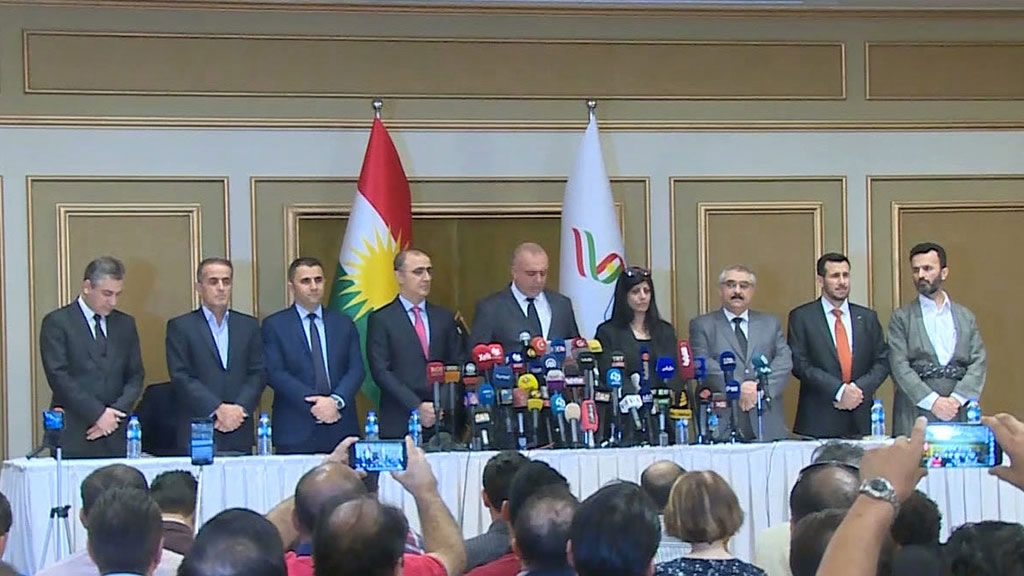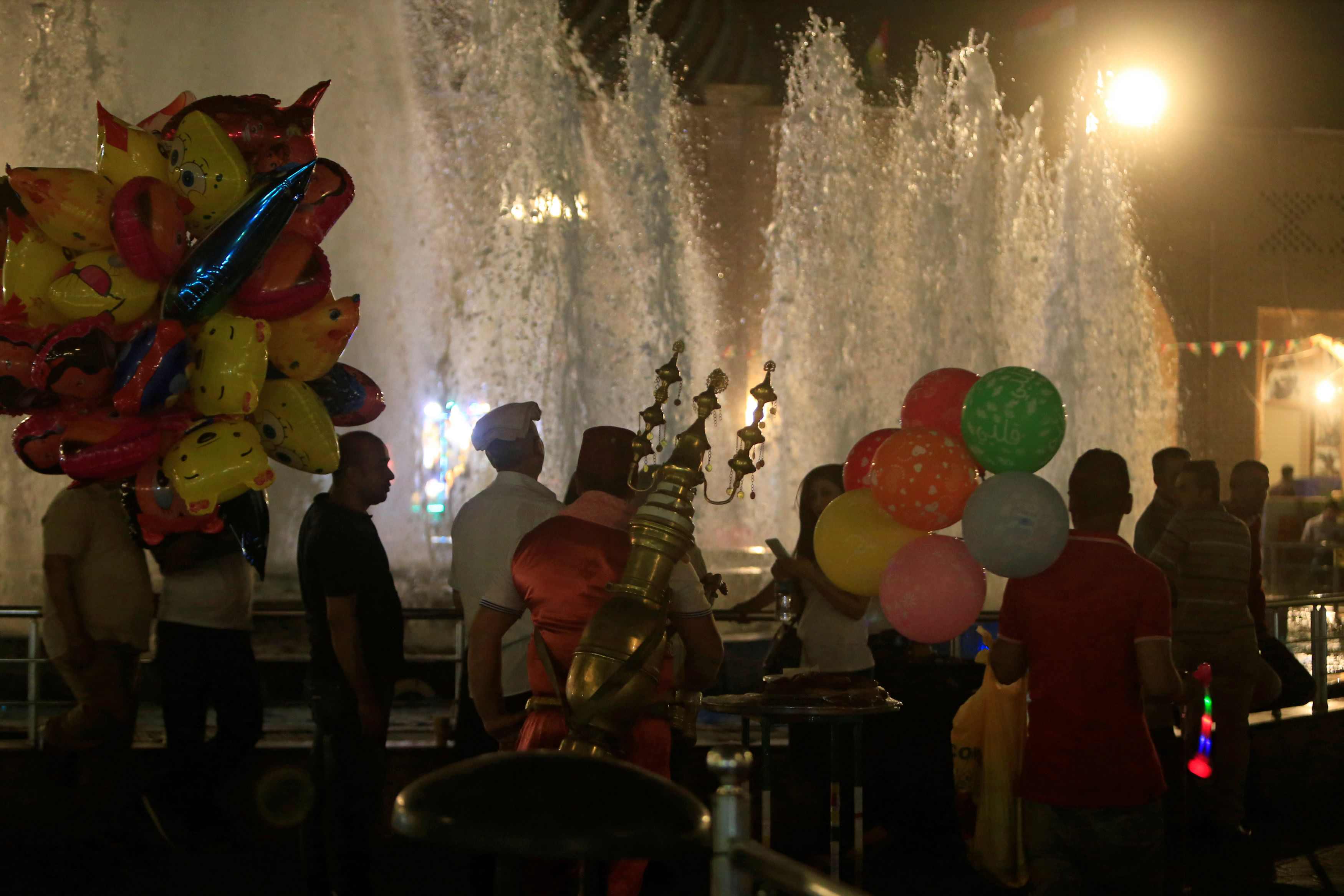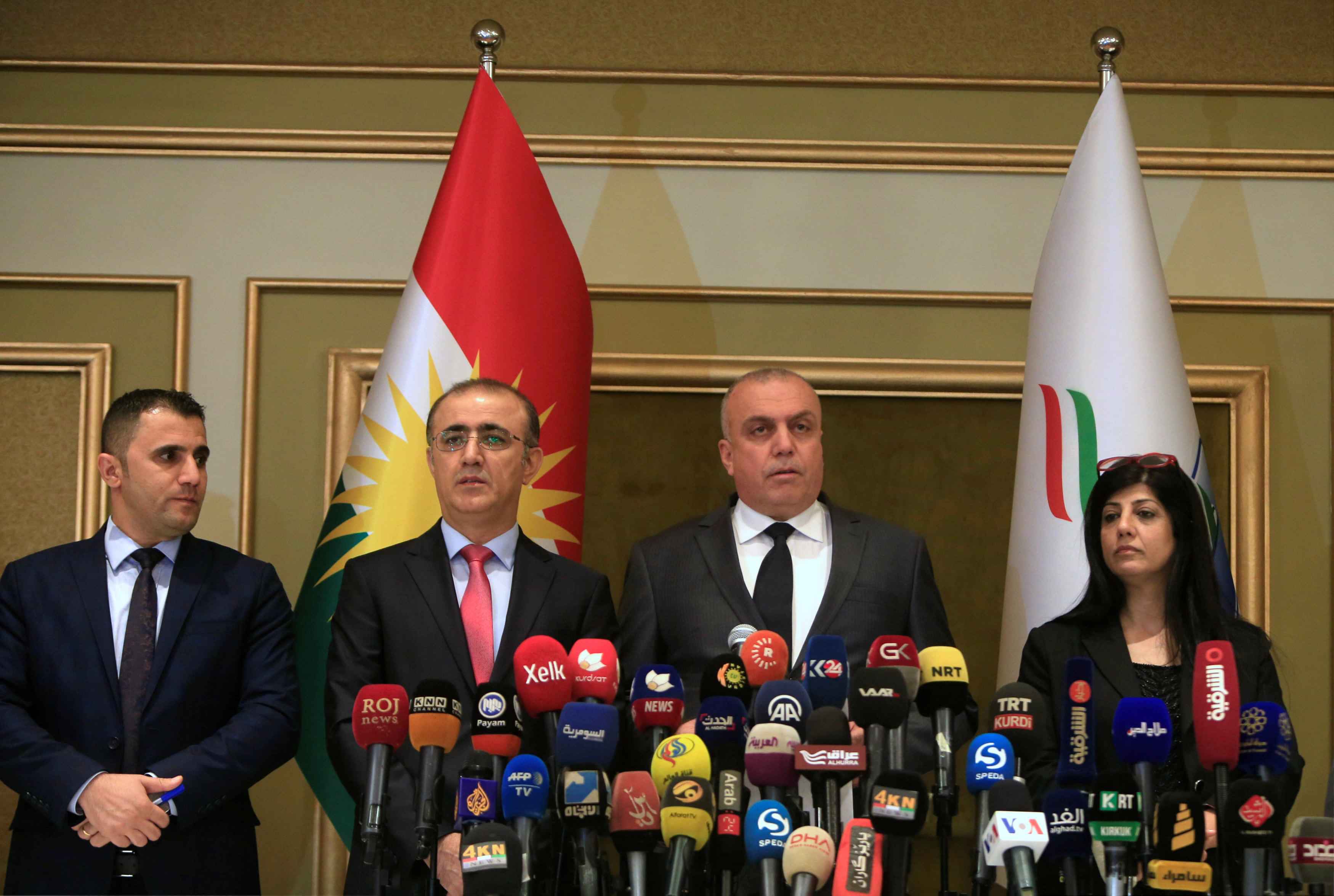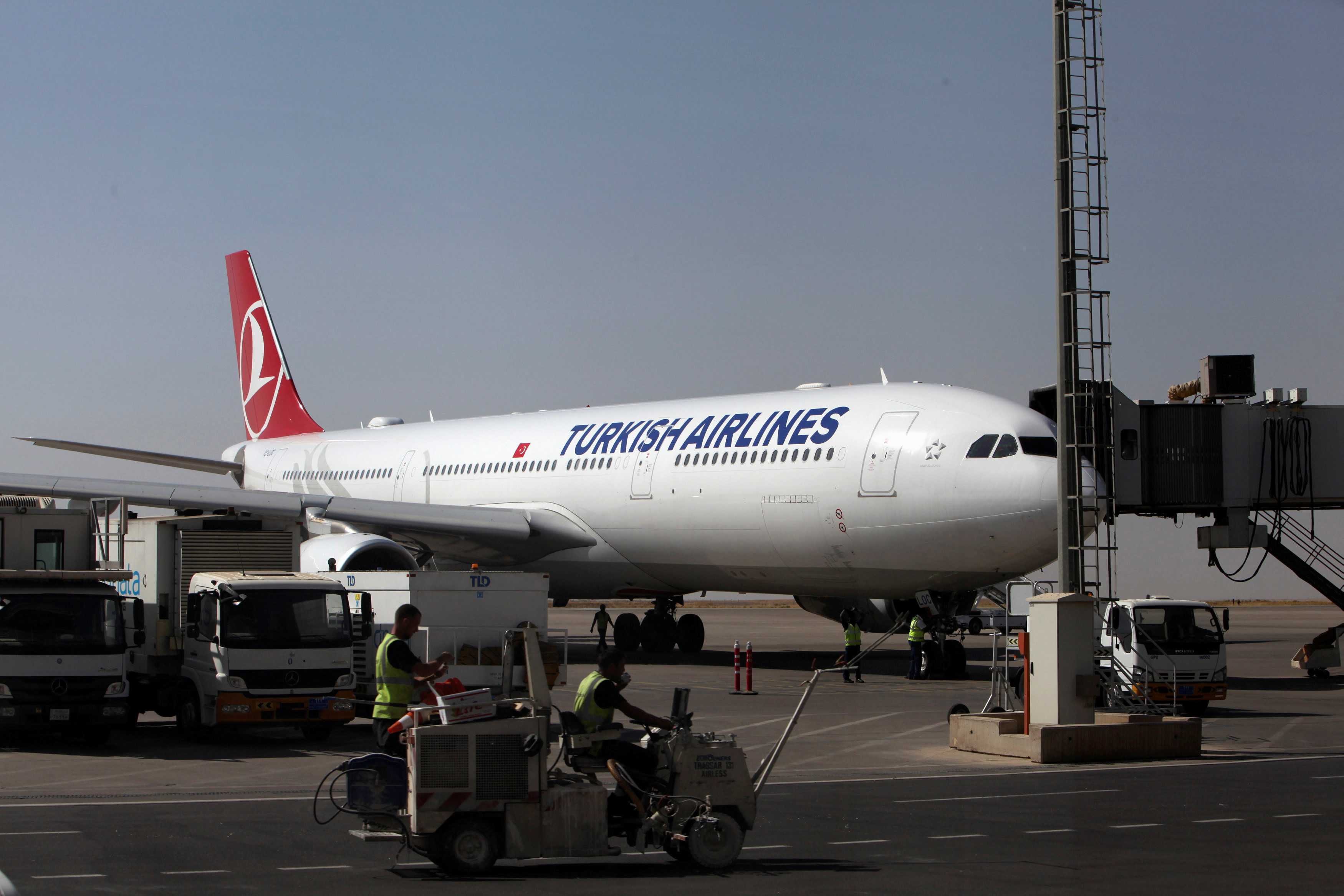
Politics
09:39, 28-Sep-2017
Iraqi Kurds face pressure to reverse independence vote
By Tony Cheng

Over 92 percent of Iraq’s Kurds voted “yes” in Monday’s independence vote, according to the results announced by the High Elections and Referendum Commission on Wednesday.
The referendum – and the outcome – have been angrily rejected by Baghdad and regional powers. Iraq’s Prime Minister called it a “historic mistake”, vowing to keep the country united.
Ethnic Kurds are celebrating the results in the independence referendum in the disputed territory of Kirkuk.
Will the result be decisive?

Kurds celebrate to show their support for the independence referendum in Erbil, Iraq, September 27, 2017. /Reuters Photo
Kurds celebrate to show their support for the independence referendum in Erbil, Iraq, September 27, 2017. /Reuters Photo
On Wednesday afternoon, after two days of deliberation, the region’s election commission had the answer.
“We counted 2,761,471 votes, which means 92.73 percent of people voted yes,” Sherwan Zerar, spokesman for the Election Commission said.
That’s a high turnout and a decisive response.
Is anybody listening?

The High Elections and Referendum Commission holds a press conference in Erbil, Iraq, September 27, 2017. /Reuters Photo
The High Elections and Referendum Commission holds a press conference in Erbil, Iraq, September 27, 2017. /Reuters Photo
Not Haider al-Abadi, Iraq’s Prime Minister, who said, “We are not ready to discuss or have a dialogue about the results of the referendum because it is unconstitutional, illegitimate and its measures are incorrect, whether in accordance with international and Iraqi measures or measures observed by the region itself.”
Baghdad heaped pressure on Kurds on Wednesday, demanding they cancel their overwhelming vote for independence while parliament urged the Iraqi central government to send troops to take control of vital oil fields held by Kurdish forces.
Baghdad also demanded that foreign governments close their diplomatic missions in the Kurdish capital Erbil.
Fears of new regional conflict
The referendum has stirred fears of a new regional conflict.
An Iraqi armed forces delegation headed to neighboring Iran to coordinate military efforts, apparently as part of retaliatory measures taken by the government in Baghdad following the vote.
Iran and Turkey also oppose any move towards Kurdish secession and their armies have started joint exercises near their borders with Iraqi Kurdistan in recent days. Iraq and Turkey have also held joint military drills.
Foreign airlines began suspending flights to Kurdish airports after the Iraqi Civil Aviation Authority said on Wednesday that international flights to Erbil and Sulaimaniya would be suspended from 1500 GMT.

A Turkish Airlines plane is seen at Erbil International Airport, Iraq, September 27, 2017. /Reuters Photo
A Turkish Airlines plane is seen at Erbil International Airport, Iraq, September 27, 2017. /Reuters Photo
Kurdish authorities rejected Baghdad's demands that they should annul the referendum as a condition for dialogue and hand over control of their international airports.
On Wednesday evening, Kurdish Rudaw TV reported that the Kurdistan Regional Government had offered to hold talks with Baghdad about hosting Iraqi observers at Erbil and Sulaimaniya airports to help defuse the crisis.
Turkey, which has threatened to impose sanctions on the Kurds, said its border with northern Iraq remained open, although it may not remain so. The number of trucks passing through had however decreased.
The Kurds may have taken the first steps toward founding a nation, but it will be born into a hostile world.
6182km

SITEMAP
Copyright © 2018 CGTN. Beijing ICP prepared NO.16065310-3
Copyright © 2018 CGTN. Beijing ICP prepared NO.16065310-3